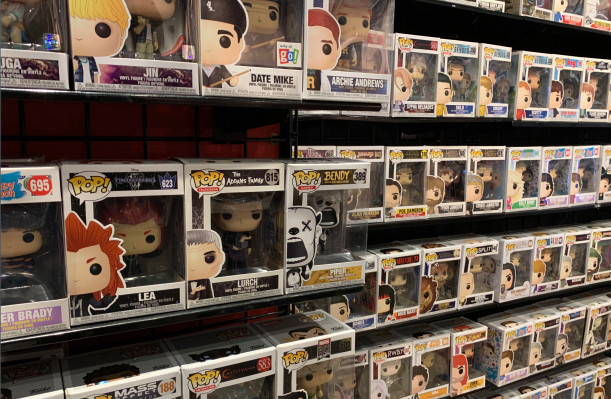Funko Pops. You’ve probably noticed them at your local GameStop, Hot Topic or spread out all over your co-worker’s desk. These lil’ vinyl figurines and their big ol’ heads have taken over retail shelves in the last few years. You can now find a Funko Pop! (or thirty) for just about every fandom; there are more than 8,000 different Pops, and that number never seems to stop growing.
Like most collectible things, some Pops are worth more than others — whether they’re obscure characters that didn’t get a big run, limited-edition color variations or were only sold for a day or two at a convention, the rarest Pops can sell for hundreds or thousands of dollars. And, like anything where people are dropping piles of cash, there are folks trying to sell fakes.
Whatnot, a company out of Y Combinator’s Winter 2020 class, wants to tackle the issue of fakes in collectibles by adapting a model proven by services like GOAT and StockX: authenticated resale.
As with the aforementioned, Whatnot works as the obsessively-informed middle man between buyer and seller. Buyer makes an offer, seller sends their figurine to Whatnot, Whatnot uses its growing knowledge of what’s real (and how to flag what’s not) to make sure it’s legit. If everything looks good, Whatnot forwards the Funko Pop to the buyer and takes their cut (about 9%, plus a few bucks for shipping).
“We started out buying and reselling sneakers, actually,” Whatnot co-founder Grant LaFontaine tells me. “Then we started getting into buying/reselling Funko Pops. As we started to do this, we noticed it was much more difficult, and much more unsafe, to buy and sell Funko Pops than it was to buy and sell sneakers.”
Services like GOAT and StockX had “drastically simplified” the process for sneaker fans, LaFontaine says, helping to weed out counterfeits for buyers while limiting potential scams that could hurt sellers.

Today all sales on Whatnot are verified by a human expert. That makes sense for the rarer, more expensive figurines. The “Grails,” as Funko Pop collectors call them — like this Comic Con Sith Trooper that has been selling for around $600-700, or this 2012 “Holographic” Darth Maul that can go for thousands. For the less rare stuff, though, it’s a bit overkill.
With that in mind, Whatnot is building out its database of the red flags to look for with each transaction — things like boxes that are just slightly mis-sized, or a logo that doesn’t look quite right. In time, this could allow for more of their verification to be automated, with the human expert (and the associated higher fees) reserved for bigger transactions.
Whatnot isn’t alone in noticing this market’s potential. StockX, the authenticated resale marketplace that first focused on sneakers, expanded into collectibles late last year. Whatnot is looking to find its fan base by focusing solely on collectibles, giving collectors the exact user experience, filters and info they’d be looking for within a given category.
That’s not to say they’re focusing solely on Funko Pops, though — not in the long run, at least. The team intends to expand into other types of collectibles down the road, with Pokémon cards being the likely next candidate.
Whatnot tells me it has raised a $550,000 pre-seed round from Wonder Ventures, YC, and a handful of angel investors.










